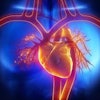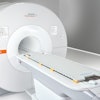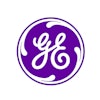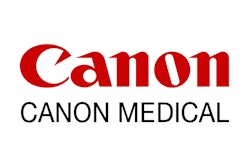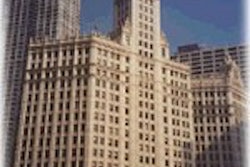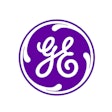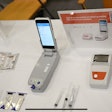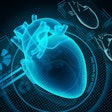CHICAGO - Just when you thought you had entered the Digital Age, your referring doctor calls and says, "Hey, have you got a hard copy of that CT study for my patient files?" Now there’s another option for producing professional-looking hard copies of radiologic studies for minimal expense.
"I think of this as the ‘e-mail syndrome’," said Chih-Her Suen, brand manager for JetPRINT imaging, International Paper, Memphis, Tenn. When e-mail became the rage, Suen said, everyone figured that no one would need paper any more for letters. But paper products saw nary a dip in sales as everyone printed out e-mails.
So when hospitals and clinic went digital, storing x-rays and CT studies and MRI pictures on computers, Suen thought he saw another example of the e-mail syndrome developing. At a press briefing at the RSNA meeting Tuesday, Suen explained that International Paper researchers sought to develop a paper that could be used with typical office printers and produce a usable copy of what doctors were seeing on their computer screens.
The new paper which has a base cost of about 35 cents a sheet and other factors make each hard copy or Patient Report Image, as Suen calls it, cost about 55-60 cents. The paper dries instantly, maintains image quality similar to printers that costs thousands of dollars, is water-resistant, and comes with a glossy finish that shows no fingerprints.
Suen said there are innumerable situations that call for a hard copy. Those include explaining to a patient what is causing illness or injury and how the doctor expects to treat the condition; in the operating room as a guide for surgery; updating a primary care physician a patient's permanent file. "We know that in some offices having a hard copy is a big issue," Suen said.
The paper is designed for use with inkjet or laser jet printers but doesn’t allow the ink to spread, maintaining a sharp image. Suen said the $300 Canon S800 photo printer fires a fine enough spray to complement the paper and reproduce accurately the most complicated image or pattern.
Richard Smillie, vice president for business development for DUES Technologies, said his company selected the International Paper system for use with its computer-aided lung cancer detection machinery. Smillie said conventional paper and laser paper were not able to provide the image clarity he needed, but the JetPRINT did. "We saw the advantages in image quality, the paper was easier to hold and it was less expensive."
By Edward Susman
AuntMinnie.com contributing writer
November 28, 2001
For the rest of our coverage of the 2001 RSNA meeting, go to our RADCast@RSNA 2001.
Copyright © 2001 AuntMinnie.com

